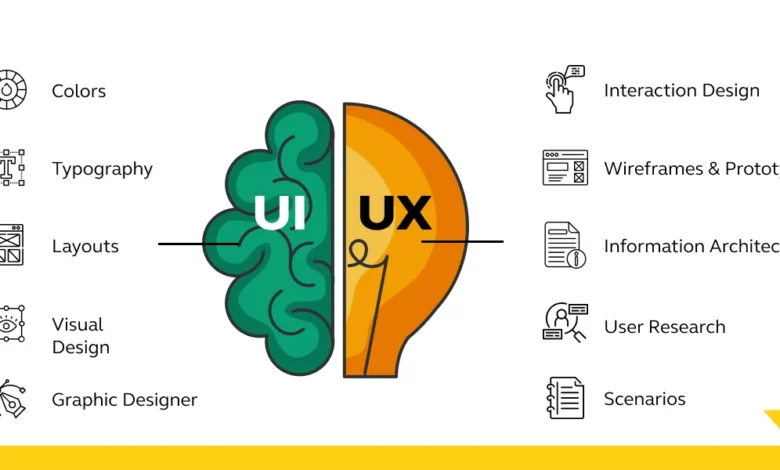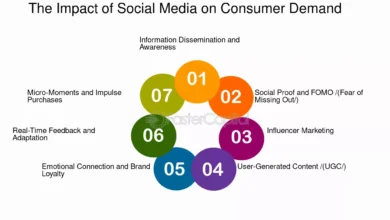The Ultimate Guide to UX Jobs: Opportunities, Skills, and Career Growth

ux jobs User Experience (UX) design has become one of the most sought-after fields in the tech industry. Companies across various sectors are recognizing the importance of delivering seamless, user-friendly digital experiences, leading to a surge in demand for skilled UX professionals. Whether you’re a beginner exploring career options or an experienced designer looking to advance, UX jobs offer a dynamic and rewarding career path.
UX roles are diverse, ranging from UX designers and researchers to interaction designers and information architects. Each position plays a crucial role in shaping how users interact with digital products. As businesses prioritize customer satisfaction, UX professionals are now integral to product development teams, ensuring that apps, websites, and software are intuitive, accessible, and enjoyable to use.
Why Pursue a Career in UX?
The UX field is growing rapidly, with job opportunities expanding across industries such as tech, healthcare, finance, and e-commerce. One of the biggest advantages of a UX career is its versatility—professionals can work in-house for corporations, at design agencies, or even as freelancers. Additionally, UX jobs often come with competitive salaries, creative challenges, and the chance to make a tangible impact on user satisfaction.
Another appealing aspect of UX careers is the continuous learning involved. Since technology and user preferences evolve, UX professionals must stay updated with the latest trends, tools, and methodologies. This keeps the job exciting and ensures long-term career growth. Whether you enjoy problem-solving, psychology, or visual design, UX offers a role that aligns with your strengths.
Key Skills Required for UX Jobs

To succeed in UX jobs, professionals need a mix of technical and soft skills. One of the most critical abilities is user research—understanding user behaviors, needs, and pain points through methods like surveys, interviews, and usability testing. Research helps designers create products that truly resonate with their target audience.
Another essential skill is wireframing and prototyping. UX designers must be proficient in tools like Figma, Sketch, or Adobe XD to create mockups and interactive prototypes. These visual representations help teams visualize the final product before development begins, saving time and resources.
Beyond technical expertise, soft skills like communication and empathy are vital. UX professionals collaborate with developers, marketers, and stakeholders, making it crucial to articulate design decisions clearly. Empathy allows designers to see products from the user’s perspective, leading to more intuitive and human-centered designs.
Different Types of UX Jobs
The UX field offers a variety of roles, each with distinct responsibilities. UX designers focus on the overall feel of a product, ensuring smooth navigation and aesthetic appeal. They work on layouts, color schemes, and interactive elements to enhance usability. Many UX designers also handle user testing to refine their designs based on feedback.
UX researchers, on the other hand, dive deep into user behavior. They conduct studies, analyze data, and provide insights that guide design decisions. Their work ensures that products are built with real user needs in mind, rather than assumptions.
Another important role is that of a UX writer, who crafts microcopy—button labels, error messages, and instructions—to improve clarity and engagement. Even small changes in wording can significantly impact user experience. Additionally, interaction designers specialize in how users engage with digital interfaces, focusing on animations, transitions, and feedback mechanisms.
How to Land a UX Job
Breaking into the UX industry requires a strong portfolio showcasing your skills and thought process. Employers look for case studies that demonstrate problem-solving abilities, from initial research to final design solutions. Aspiring UX professionals should also gain hands-on experience through internships, freelance projects, or personal design challenges.
Networking plays a crucial role in securing UX jobs. Attending industry events, joining online UX communities, and connecting with professionals on LinkedIn can open doors to job opportunities. Many companies also value certifications from reputable UX courses, which validate your expertise and commitment to the field.
Lastly, preparing for UX job interviews is essential. Candidates should be ready to discuss their design process, past projects, and how they handle feedback. Behavioral questions often focus on collaboration, adaptability, and problem-solving, so practicing real-world scenarios can give you an edge.
Future Trends in UX Careers

The future of UX jobs looks promising, with emerging technologies like AI, VR, and voice interfaces creating new opportunities. UX designers will need to adapt to these advancements, ensuring that interactions remain seamless across different platforms. Additionally, accessibility and inclusive design are gaining importance, pushing companies to prioritize usability for all users.
Remote work is also shaping the UX job market, with more companies hiring designers globally. This flexibility allows professionals to work with diverse teams and clients, expanding their experience. As businesses continue to invest in digital transformation, UX professionals will remain in high demand, making it an excellent time to pursue a career in this field.
Conclusion
UX jobs offer a fulfilling career path for those passionate about creating meaningful digital experiences. With the right skills, portfolio, and networking strategies, aspiring designers can secure rewarding roles in various industries. As technology evolves, UX professionals will play an even bigger role in shaping how users interact with digital products, making this an exciting and future-proof career choice.
Whether you’re just starting or looking to advance, the UX field welcomes creativity, problem-solving, and a user-first mindset. By staying updated with industry trends and continuously refining your skills, you can build a successful and impactful career in UX.



